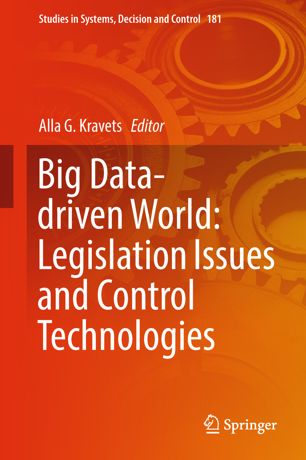

Most ebook files are in PDF format, so you can easily read them using various software such as Foxit Reader or directly on the Google Chrome browser.
Some ebook files are released by publishers in other formats such as .awz, .mobi, .epub, .fb2, etc. You may need to install specific software to read these formats on mobile/PC, such as Calibre.
Please read the tutorial at this link: https://ebookbell.com/faq
We offer FREE conversion to the popular formats you request; however, this may take some time. Therefore, right after payment, please email us, and we will try to provide the service as quickly as possible.
For some exceptional file formats or broken links (if any), please refrain from opening any disputes. Instead, email us first, and we will try to assist within a maximum of 6 hours.
EbookBell Team

4.8
44 reviewsThis book examines the methodological foundations of the Big Data-driven world, formulates its concept within the frameworks of modern control methods and theories, and approaches the peculiarities of Control Technologies as a specific sphere of the Big Data-driven world, distinguished in the modern Digital Economy. The book studies the genesis of mathematical and information methods’ transition from data analysis & processing to knowledge discovery and predictive analytics in the 21st century. In addition, it analyzes the conditions of development and implementation of Big Data analysis approaches in investigative activities and determines the role and meaning of global networks as platforms for the establishment of legislation and regulations in the Big Data-driven world.
The book examines that world through the prism of Legislation Issues, substantiate the scientific and methodological approaches to studying modern mechanisms of terrorism and extremism counteraction in the conditions of new challenges of dissemination and accessibility of socially dangerous information. Systematization of successful experience of the Big Data solutions implementation in the different countries and analyze causal connections of the Digital Economy formation from the positions of new technological challenges is performed.The book’s target audience includes scientists, students, PhD and Master students who conduct scientific research on the topic of Big Data not only in the field of IT& data science, but also in connection with legislative regulation aspects of the modern information society. It also includes practitioners and experts, as well as state authorities and representatives of international organizations interested in creating mechanisms for implementing Digital Economy projects in the Big Data-driven world.